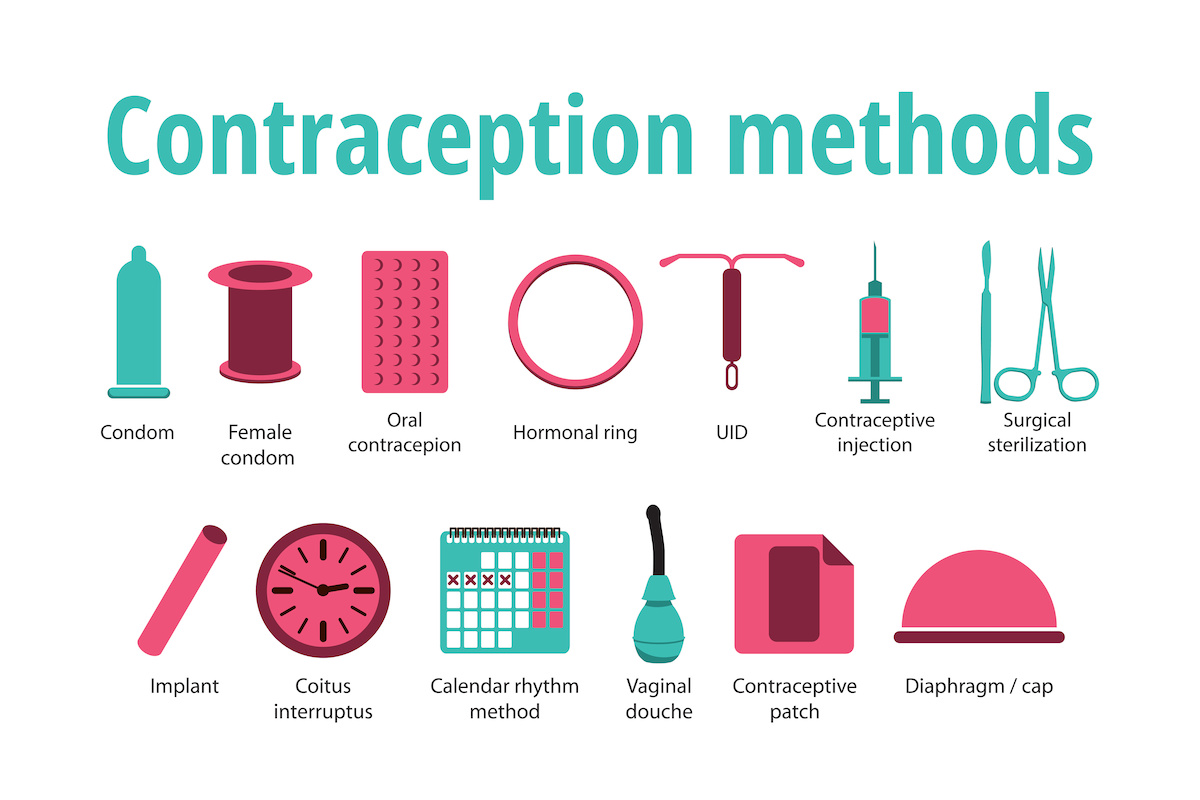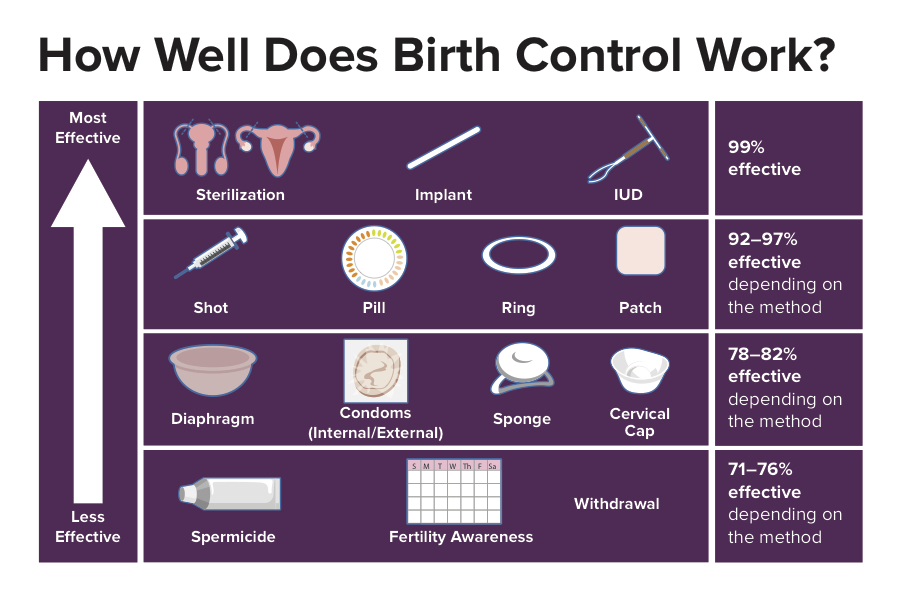
When it comes to choosing a birth control method, many Nigerian women don’t have the information they need to make the right decision. This article provides an overview of the various options for women and men, how they work, benefits and more.
1. What birth control options are available?
- Barrier methods: condoms, diaphragm, etc.
- Hormonal methods: birth control pills, implants, etc.
- Intrauterine devices (IUDs)
- Sterilization: tubal ligation, vasectomy.
- Natural family planning.
In addition to the above, it’s also important to be aware of emergency contraception. This is called the morning-after pill (Plan B)—which can be used to prevent pregnancy after unprotected sex.
2. How do the different birth control options work?
Birth control methods may:
- Prevent sperm from reaching the egg
- Inactivate or damage sperm
- Prevent an egg from being released each month
- Birth control methods may also alter the lining of the uterus so that a fertilized egg doesn’t attach to it or thicken cervical mucus so that sperm can’t easily pass through it.

Different methods, different effects, same goal.
3. How effective are birth control methods?
The first thing to note is that for any contraception method to be effective, it must be used consistently and correctly. Contraceptives that require little effort on your part, such as IUDs, contraceptive implants, and sterilization, are associated with lower pregnancy rates.

In contrast, methods that require monitoring fertility or periodic abstinence are associated with higher pregnancy rates. The bottom line is that the right method is the one that you are comfortable with and willing/able to use.
4. Is birth control reversible?
The method of contraception you choose depends on your reproductive goals. If you’re planning a pregnancy soon, choose a method that’s easily stopped/reversible, such as an oral contraceptive or barrier method.
If you’d like to get pregnant—but not soon—you may want to consider an IUD. An IUD ensures a quick return to fertility once stopped, but it is expensive if you are going to use it only for a short period.
If you’re sure that you don’t ever want to have children or you’re done having kids, you may prefer a permanent method, such as sterilization.
You may also find that different contraceptive options work for you at different stages of your life.
5. Is birth control compatible with your religious or cultural beliefs?
Some forms of birth control are considered a violation of certain religious laws or cultural traditions but it’s all down to your personal convictions in the end.
Suggested Read: False Positives: How Your Home Pregnancy Test Can Trick You
6. Is it convenient and affordable?
For some people, convenience suggests ease of use, no bothersome side effects, or no disruption of the sexual experience. For others, convenience means no prescription is required.
When choosing a method of contraception, consider how willing you are to plan or, if necessary, adhere to a rigid schedule. It’s important to choose a type of birth control that suits your lifestyle.
Some methods of contraception are inexpensive, while others are pricier. Ask your doctor for advice and then consider the expense as you decide.
7. What are the side effects of birth control?
Some methods such as those that contain oestrogen or progesterone pose more side effects than others, such as condoms and natural family planning methods. Weigh your options with your doctors before deciding.
8. Does birth control protect against sexually transmitted infections?
Male and female condoms are the only methods of birth control that offer reliable protection from sexually transmitted infections.
9. Does it offer other benefits?
In addition to preventing pregnancy, some contraceptives provide benefits like predictable, lighter menstrual cycles, decreased risk of STIs, etc. If these benefits are important to you, they may influence your choice.
10. Is your birth control method acceptable to your sexual partner?
Your partner may have birth control preferences that are similar to or different from your own. Discuss with them to arrive at a method that’s acceptable to both of you. If you’re a woman, we however think the ultimate decision should be yours because it’s your body.
Finally,
When you choose a birth control method, many factors come into play, including your age, health, emotional maturity, marital status, sexual relationships, and religious convictions. Knowing your options is part of the decision process so, an honest assessment of yourself and your relationships is just as important when deciding the type of birth control that’s right for you.
Read more: False-Positives: How Your Home Pregnancy Test Can Trick You.
References
Healthline: https://www.healthline.com/health/birth-control/methods#low-maintenance



